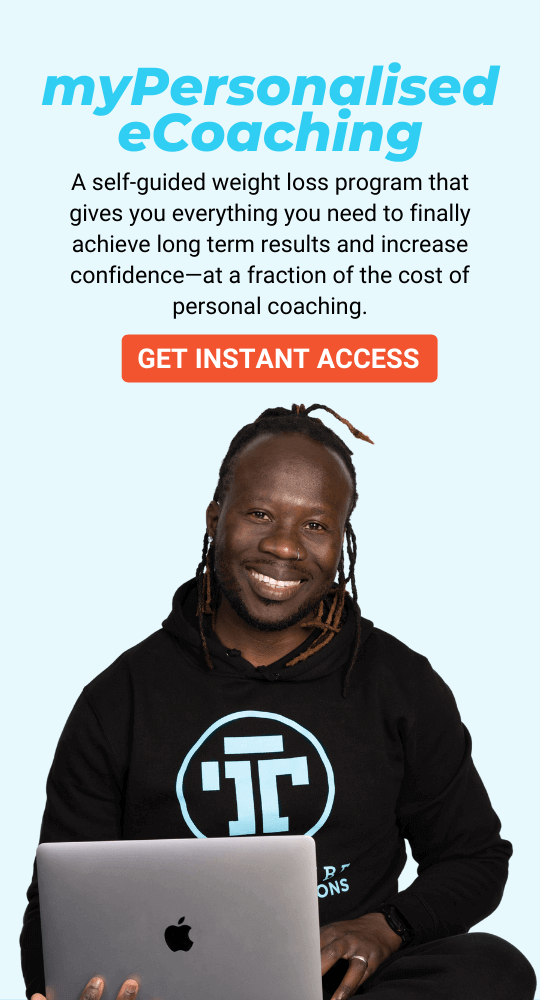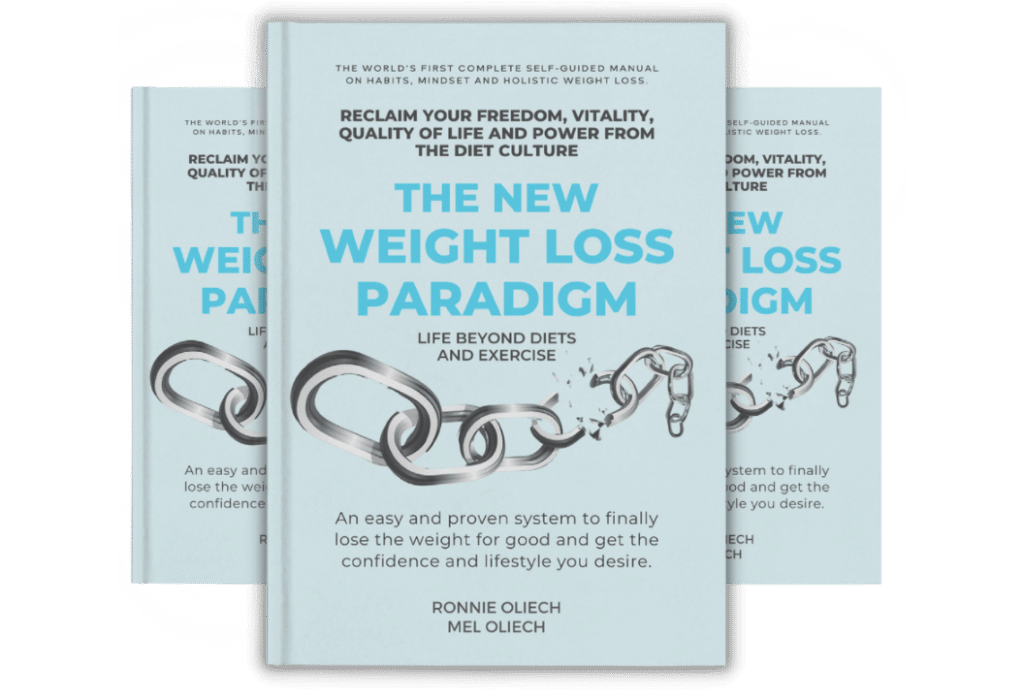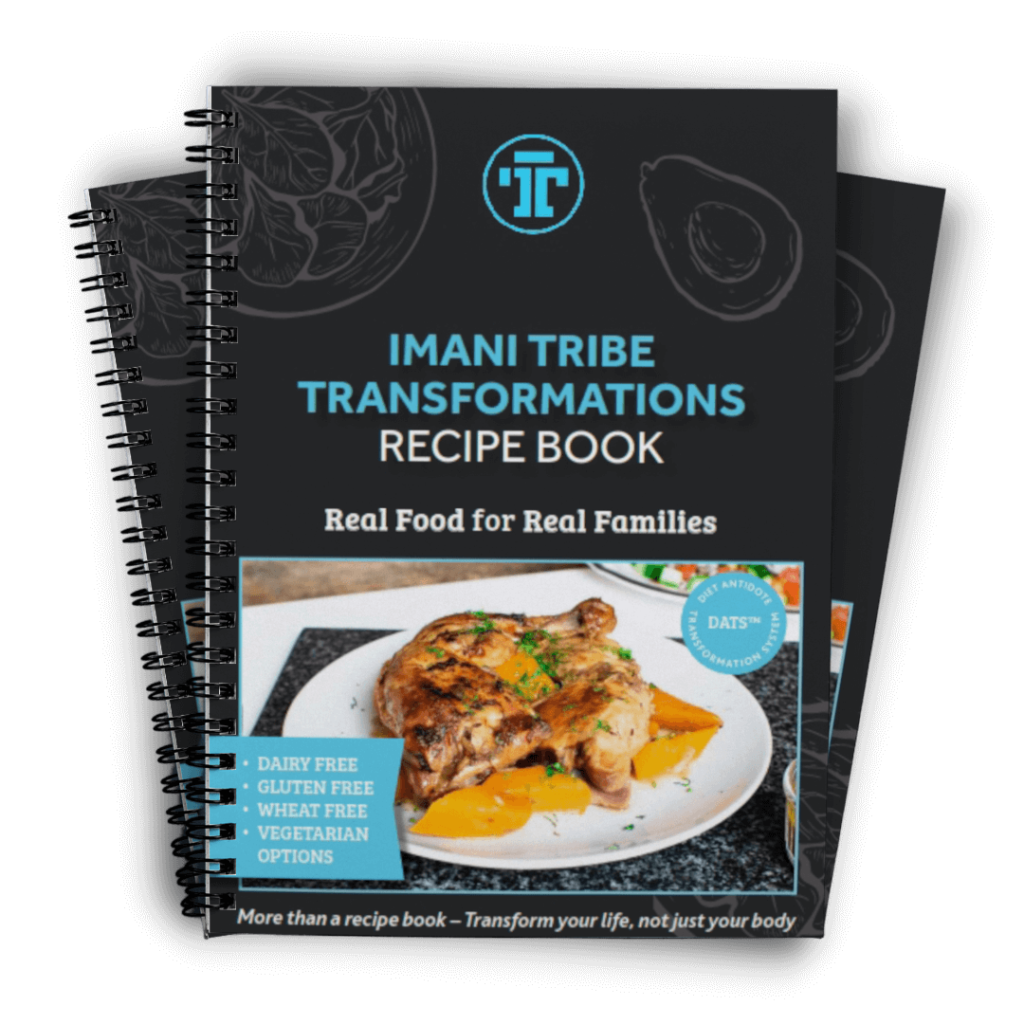When you hear the word ‘trauma’ what do you think of?
If you’re like most people, you probably think of a major event such as war or a natural disaster, or perhaps a really bad thing like an accident, an act of violence, serious illness or perhaps a sexual assault. While all these can be traumatic, trauma isn’t isolated to the ‘big’ things.
Trauma can also be linked to an event that on the surface, seems small and insignificant, yet has a profound effect on us.
Trauma is the invisible force that shapes the way we live, the way we love, and the way we make sense of the world. It is the root of our deepest wounds.
Why we are writing this blog
For more than 10 years, we’ve worked with people to help them transform their body and life. Unlike the diet programs, we work with people on a personal level for an average of 3 years, not 6-12 weeks, which means we get to build relationships, know and understand people on a deeper level. In our quest to solving their weight loss problems, we dig deep into their habits and mindsets, and what we find is that sometimes these habits may arise from trauma.
Over the last decade, we’ve also witnessed many people go through countless fad diets and extreme 6-12 week fitness challenges to numb their pain instead of addressing the root cause of their weight problem. None of them worked, yet all of them left them worse off than when they started. This is why created the DATS™️ Coaching program.
Unfortunately, we can not rely on willpower to out-train our habits, mindset, and traumas.
Traditionally, the term ‘trauma’ was reserved for natural disasters, serious accidents, and episodes of violence or abuse. Many people who knew that something significant had happened to them were reluctant to call it ‘trauma’ because it didn’t fit into the category of what most people considered a traumatic event, plus there was, and still is a lot of stigma around trauma.
Stigma is when you’re seen in a negative way because of a particular characteristic or attribute (such as skin colour, cultural background, a disability, or a mental illness), while discrimination is being treated in a negative way because of particular characteristics or attributes.
Stigma occurs when someone is defined by their characteristics or attributes, rather than who they are as an individual. For example, people experiencing a weight problem are labelled ‘fat’, or people with a mental illness are labelled ‘mentally ill’.
Experiencing stigma and discrimination can worsen the trauma and make it harder to recover from. It may cause the person with trauma to avoid getting the help they need because of the fear of being stigmatised. The fear of stigma also causes people to hide and not ask for help, which denies them a chance to resolve their trauma.
Awareness around trauma is growing and we now know that trauma can be caused by anything. We believe that a lot of people have trauma in their lives, even if it’s not clinically diagnosed because habits and mindsets don’t just appear out of nowhere.
We are not psychologists and don’t pretend to be. We are just people who are passionate about looking deeper and finding answers as to why many people struggle with weight loss for a lifetime despite working so hard to lose weight or knowing what to do. Or even why many people still continue to jump on diet after diet despite every diet leaving them worse off than they started.
Our hope in writing this blog is to shed light that weight loss is never about food or exercise. It’s about personal problems (habits, fears, mindsets, identities and beliefs) that sometimes crop up from trauma.
We want to be at the forefront of creating a more trauma-aware society.
We hope that we all start seeing each other for what happened to us and not what’s wrong with us because until we do, we will always re-enact and project our traumas on others.
The information contained in this blog is for information and educational purposes only. It is not intended as a substitute for professional, medical, or psychological advice, diagnosis, or treatment. If you have issues around trauma that are impacting you, we encourage you to seek professional help.
We invite you to read this with an open mind. Take what you can, leave the rest. If it’s too much, take a break and come back to it. We also encourage you to read this blog more than once. Every time you do, you’ll have greater self-awareness and you will understand things and make sense of them differently.
What is trauma?
Trauma is not what happened to us. It’s how what happened to us affected us. It’s how we processed what happened to us.
For example, let’s consider a 4-year-old child getting lost at a shopping centre.
For the child, being separated from her mother would be a terribly upsetting event. She may feel terrified, threatened, isolated, alone, and in danger.
What about her mother? She is also likely to feel anxious, upset, and stressed about her lost child.
And then there is the security guard who finds the lost child.
For the security guard, a lost child in a shopping centre is probably a fairly common occurrence. So common in fact, that there are procedures to follow to reunite the child with her mother. For the security guard, helping a lost child is just part of their job. It’s not a traumatic event and it may even build their resilience.
While the mother is no doubt stressed and anxious while separated from her child, once she is reunited with her child, her anxiety levels will drop and she’ll eventually return to the same level of calm as she was before her child was lost.
However, for the child, who is unable to process such an event, and who experienced such high levels of negative emotions, this event is traumatic and may have an impact on the rest of her life. For example, she may develop a fear of being alone, separation anxiety, or even a fear of shopping centres.
What influences trauma?
Trauma isn’t about the event. It’s how we react to the event. Several factors influence trauma.
Age
The younger we are when we experience trauma, the more likely we are to have a traumatic response to the event because we are unable to regulate our emotions.
Think about it. Would a 17-year-old be traumatised by being separated from their parents at a shopping centre? No. To be honest, they would probably prefer not to shop with their parents! But even if they did want to stick with their parents, becoming separated from them wouldn’t be traumatic because they would have the emotional maturity to process the event and to engage in self-regulating behaviours (e.g. deep breathing) to help them calm down if they did become upset.
Young children on the other hand are not equipped to deal with such intense emotions because they don’t know how to regulate their feelings to calm themselves.
This is not to say we can’t experience trauma as an adult. Of course, we can. Trauma occurs when our normal coping mechanisms are overwhelmed — but we are more likely to be overwhelmed when we are a child.
Culture and beliefs
Our culture, how we were raised, and associated beliefs of what’s normal and what’s not normal also influence trauma. For example, growing up in Kenya the philosophy on raising children was ‘spare the rod, spoil the child’. It was very normal for parents and teachers to use corporal punishment for discipline. While this was okay in our culture, this kind of parenting would traumatise a child in the western world.
I also remember witnessing at least 3 people lynched to death during my childhood. It was normal for robbers to be lynched in public when caught.
Yet I wasn’t traumatised by these events because corporal punishment was part of my African culture and was enforced both at home and at school, and criminal robbers being lynched when caught by the public was acceptable punishment.
Racism or persecution
Being persecuted or enduring racism can also influence trauma. While I am not traumatised by seeing people being lynched, I am traumatised by racism. To this day, I am still cautious about anything that might make me fall on the wrong side of racism. For example, I avoid walking late at night or dressing up in a way that I can be stereotyped at night. I avoid things like hoodies and beanies even on cold winter nights.
This is because my racism trauma dictates that if something goes wrong and I happen to be there, I will be stereotyped by my skin colour and the way I am dressed — a well-built black man in a hoodie or a beanie is a “gangster”. Yes, there might be two people, white and black but the first suspect will always be the black person, even when innocent.
This constant worry is trauma.
Toxic relationships
If you don’t have anywhere that feels safe to be yourself and express your feelings, this can influence trauma. For example, if you were raised in a house where a parent yelled at you for crying or punished you for being angry, you’d learn not to express your emotions. But being left alone with your feelings and not being able to have somewhere safe to express them will mean you are less likely to be able to process and regulate your emotions, and therefore are more likely to experience trauma.
Responses to trauma
When we experience trauma, there are usually 4 responses.
- Fight — This is a well-known response where our brain and body respond by fighting or retaliating to a threat.
- Flight — This response involves running away from the trauma or threat, either physically or emotionally. When people are unable to physically remove themselves from trauma, they may escape by dissociating (a process of disconnecting from one’s thoughts, feelings, or sense of identity).
- Freeze — The freeze response occurs when the nervous system is activated and you literally freeze (become immobile).
- Appease — This response involves trying to please a person to avoid further trauma. It’s often a response used by children when they are being abused as they believe that by pleasing their abuser (at the expense of their own feelings and desires) they will be able to prevent the abuse.
How does trauma affect weight loss?
The more we work with people, the more we understand that weight loss is never about nutrition or exercise. It’s about personal problems (habits, mindsets, fears and beliefs). And sometimes these personal problems may arise from trauma.
Trauma is a wound that hardens us psychologically and interferes with our ability to grow and develop. Trauma makes us less flexible, more rigid, less feeling, and more defended. Unless we heal our trauma, we will continue to re-enact our initial trauma response every time our trauma is triggered, or we may project our trauma onto others. Unfortunately, this means that we will engage in behaviours that will sabotage our own weight loss journey. For example:
Fight — The fight response may show up as controlling behaviours, bullying, feeling entitled, perfectionist behaviours, yelling, fighting or always being defensive.
Flight — People who engage in the flight response may lose themselves in work, distract themselves by being too busy, live in panic or constant fear, rely on alcohol and other substances to cope with emotion, or engage in other behaviours like binge eating or emotional eating to numb their emotions.
Freeze — People who experience a freeze response in trauma may wear different ‘masks’ to protect themselves, dissociate or ‘zone out’ to painful or stressful situations, hide their emotions and their feelings, avoid asking for help, and physically detach from other people, and avoid close relationships.
Appease — This manifests itself in people-pleasing, having difficulty putting yourself first, not being able to set boundaries, unable to develop your own identity, and an inability to be your authentic self.
It’s important to understand these responses and how they translate into the behaviours listed above because these behaviours themselves will end up self-sabotaging our weight loss. To find out how each of these behaviours impacts your weight, simply click on the links above.
Dissociation and weight loss
Dissociation is a mental process of disconnecting from one’s thoughts, feelings, memories, or sense of identity and is a very common response to trauma. Dissociation is not a good or a bad thing. However, dissociating involves blocking emotions, and when that happens you never process your trauma or heal from it.
When we block emotions, we end up blocking both good and bad emotions, because we can’t isolate our emotions. So while blocking emotions may prevent us from feeling pain, it will also prevent us from feeling joy. The other problem with blocking emotions is that a lot of people resort to substance abuse like drugs, alcohol, sex and food (overeating, binge eating, emotional eating and dieting) to numb their pain — which of course contributes to weight gain.
Other typical behaviours of trauma blocking include:
- perfectionism
- being a workaholic
- being unable to be on your own
- having an unhealthy relationship with food and/or exercise
- staying up all night scrolling through social media or watching TV
- co-dependent relationships.
Dissociation also affects our awareness because the more we block and numb emotions the more we hinder our ability to have the conscious knowledge of our own character and feelings. And as we know, lack of self-awareness slows down weight loss. This lack of awareness will continue as long as our trauma goes unhealed. Without awareness, we are powerless to change anything, which means we are destined to repeat the same self-sabotaging behaviours over and over again. You can read more about this in our blog Why you’ll never lose weight without self-awareness.
Abuse victims may also use food as a way to dissociate and hide from their bodies as a coping mechanism from abuse.
What happens if we don’t heal our trauma?
If we fail to address and heal our trauma, we will either re-enact or project our trauma on the people we love.
Re-enacting trauma
Fear of being judged and rejected is one of our core fears as human beings, which is why so many people care what others think of them. Unfortunately, one of the most common traumas that people experience is being abandoned.
Ironically, we re-enact our trauma by engaging in behaviours designed to protect ourselves from that trauma. For example, if we were abandoned, we may engage in things like people-pleasing, not being our authentic selves, hiding, and not being able to put ourselves first. However, as we engage in these behaviours, we end up abandoning ourselves and create the very feeling that we are desperately trying to protect ourselves from.
Abandoning ourselves can appear as:
- apologising for our feelings
- calling out bad behaviour in others and then comforting them because they feel upset
- ignoring our needs and putting other people first
- not setting boundaries
- not calling out people when they hurt us
- overworking to the point of exhaustion
- not prioritising rest and relaxation.
Projecting trauma
Another way we deal with unresolved trauma is to project it onto other people. For example, if you grew up with parents who were not emotionally available to you (either because they physically abandoned you or didn’t show you love and affection), then you will project that onto your kids, by not being emotionally available to them. Lack of emotional availability will also impact your relationship with your partner, friends, and other family members.
Reinforcing a trauma identity
As we learn about our trauma many people end up letting it define who they are and living their life in a way that reinforces their trauma identity. Often people who experience trauma identify as a victim which means they believe they are powerless to change the situation, but we are not what happened to us (we are not our trauma), we are who we choose to become. Trauma can also lead you to develop a particular identity. We explain the importance of identity in our blog How your limiting beliefs and identity impacts your weight.
Let’s look at an example of someone who grew up in a family where they were not accepted for who they are. They may have heard things like:
“Why can’t you be more like your brother?”
“I wish you were more sporty like I was at your age”
“You’re really not good at maths, are you?”
Or they may have grown up in a family where their parents gave them things instead of time. This trauma can lead them to feel abandoned and believe that they are unlovable. This identity of being abandoned and unlovable will mean that they will act in ways to reinforce this identity. For example, they will push people away, avoid being vulnerable, be unable to be their authentic selves, and become people-pleasers.
Another example is someone who has had the role of carer thrust upon them. This may have been because they needed to care for a sick parent, or they had to assume the role of the parent by needing to manage their parents’ emotions. This trauma identity manifests itself as being a caregiver. These people may say things like “I’ve always looked after other people”, “I’ve always just been this way”, “This is just who I am” Or “That’s just me”. People who identify as caregivers will continue to act in ways that reinforce this identity. For example, they will put other people’s needs before their own, not be able to set boundaries, not be able to take time out for themselves, find it difficult to rest and relax, and believe it’s selfish to look after themselves. In a nutshell, they will continue to reenact their traumas, and the more they reenact their trauma, the more they reinforce the trauma identity that is holding them back from losing weight for good and getting the body, confidence and lifestyle they desire.
You can also develop identities as a result of other traumas such as being a refugee, racism, bullying, being orphaned, experiencing a serious illness, abandonment, being excluded, a broken marriage, or even grief.
Excessive independence
Unresolved trauma leads to poor relationships and toxic relationships. A very common trauma response is excessive independence and an inability to tolerate real emotional intimacy. People who engage in this kind of behaviour don’t have deep and meaningful relationships based on trust. Instead, they are based on the fear of rejection. This can be manifested in the following:
- a core belief that it’s not okay to ask for help
- being afraid to ask for help for fear of being rejected or let down
- using independence as a reason not to be vulnerable with or get close to others
- believing that needing other people makes them weak
- believing that not having needs is the only way others will value or love them.
Self-sabotaging behaviours
The truth is all behaviours that arise out of unresolved trauma are those that will sabotage your weight loss.
We have noticed that the people who struggle with weight loss often have unresolved trauma. They also have perfectionist habits, find it hard to ask for help, are afraid to be vulnerable, can’t be their authentic selves, dissociate, are people-pleasers, can’t put themselves first and suffer from low confidence — all habits that can be linked to trauma.
Engaging in these habits not only sabotages their weight loss, but it exacerbates their trauma, making them feel even more alone, and leads to feelings of low self-worth — a key problem that prevents people from losing weight and keeping it off. You can read why in our blog How low self-worth affects your weight.
Other examples of unresolved traumas
Trauma can be experienced in any number of ways. This can include being bullied, abandoned, rejected, humiliated, belittled, or excluded. It can also occur as a result of racism, poverty, sexism, ageism, homophobia and micro-aggressions.
However, trauma isn’t only what happened to you. It can also be about the good things that didn’t happen to you. For example, not having a safe place to sleep when you were younger, growing up without having your parents live under the same roof as you, growing up without unconditional love, or missing out on special things. This explains why so many people found the lockdowns associated with COVID traumatic — because they missed out on a lot of good things and important milestones (e.g. birthdays, graduations, weddings, funerals, etc.).
Heal your trauma to lose weight
If you’re carrying unhealed trauma, the only way you’ll be able to lose weight is to heal your trauma. Once you do, you’ll no longer automatically engage in trauma-based behaviours that sabotage your weight loss. You’ll also have a greater awareness of your triggers and how your habits impact you, which means you’ll be able to address these habits and create new ones that will support long-term weight loss.
When you heal your trauma, you’ll also relieve stress, which is a metabolic blocker and a big factor in weight gain. Living with unhealed trauma means you’re always in a heightened state, unable to regulate your emotions. This stress not only impacts your ability to lose weight but is closely linked to two other metabolic blockers — sleep and alcohol consumption.
You can read more about these in our blogs:
How stress and weight gain are linked
Sleep and weight loss: the unexpected connection
Alcohol and weight gain: 9 ways drinking affects your body shape
Finally, healing your trauma will enable you to ‘unbecome’ the traumatised person, and help you break through your limiting beliefs so you can develop a new identity of a whole person, rather than one broken by trauma. This will also help you become more confident, so you can have the body and lifestyle you desire.
How to heal trauma
To heal your trauma you need to audit, your habits, beliefs, fears, identity, and mindset. This is something that will take time (you can’t do it in 6-12 weeks or even put a timeline on it) and will involve collecting and tracking data. For example, when certain situations come up tracking what you do, when you do it, why you do it, where you do it, how you feel when you do it, and who else in the family does that. To collect data, you need a system — like our DATSTM system — which is why this is difficult to do without working with a coach.
Once you have this data, you’ll be able to identify what American author and motivational speaker, Michael Singer defines as your ‘inner thorns’ — the painful things that happened to you that you haven’t dealt with. Most of us ignore our thorns and create a life geared to avoiding them which only perpetuates the pain and causes us to be disconnected from other people.
However, you can also remove the thorn so it no longer causes you pain. This involves addressing what happened to you, becoming aware of the habits you developed as a way to protect your thorn and then working on addressing these habits.
You won’t be able to address all the habits at once. In fact, you’ll need to work on them one at a time, and some habits may take longer than others to address.
Addressing the habits that arose because of trauma won’t necessarily wipe away the trauma. However, becoming a master of your habits means that you’ll always be on top of your trauma. It will no longer run your life.
Of course, if you feel that you’ve experienced trauma or a past event is still impacting you, we encourage you to seek professional therapy.
How does therapy fit in?
Of course, sometimes it may be necessary to seek the support of a qualified therapist to help you process, resolve and heal from your trauma. However, therapy alone won’t help you address the self-sabotaging habits that you have developed as a result of the trauma. It’s a bit like taking painkillers for a persistent headache. While this may ease the symptoms it won’t treat the cause of your persistent headache, which means you will still get headaches when the medication wears off. To successfully treat your persistent headaches, you need to uncover and address the reason why you get them.
Addressing the habits that are tied to your trauma is the same. As well as therapy, you need to simultaneously work on your habits that may have developed as a result of your trauma.
How DATSTM Program helps
The DATSTM Personal Coaching Program (habit, mindset, and weight loss) and our PDSTM Program (habit, mindset, and personal development) will take the guesswork out of your personal growth and development and help you identify the habits, beliefs, and mindsets that have arisen from your trauma. It will help you change them into habits that support long-term weight loss. While we don’t offer psychological services, we do work alongside your chosen psychologists if you have diagnosed trauma, to help you get rid of the habits you developed as a result of trauma.
Once we have identified the keystone habits that are impacting you the most we develop a personalised action plan to help you overcome these and implement new ones. DATSTM will give you the knowledge, systems, tools, and skills to keep you progressing — even on your worst days.
In summary…
- The more we work with people, the more we understand that weight loss is never about nutrition or exercise. It’s about personal problems (habits, mindsets, fears, and beliefs). And these personal problems arise from trauma.
- Trauma isn’t what happened to you. It’s how what happened to you affected you, which is based on how emotionally equipped you were to deal with what happened.
- Every trauma has a trauma response and the way we responded to our initial trauma is how we will respond every time that trauma is triggered unless we heal our trauma
- Behaviours based on trauma responses are behaviours that will self-sabotage your weight loss.
- When you heal your trauma you won’t automatically engage in these behaviours.
- When you heal your trauma, you will have a greater awareness of the habits that self-sabotage your weight loss, so you will be able to address them.
- Our DATSTM Personal Coaching Program and PDSTM Coaching Program will help you identify the habits that have been born from your trauma, and help you to overcome them.
- We can work alongside psychologists to support the counselling process and to help you get rid of habits that no longer serve you.
- Our DATSTM Program gives you the knowledge, systems, tools, and skills to help you lose weight and keep it off, even on your worst days.


















